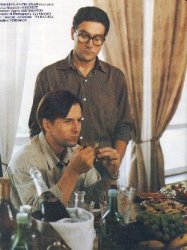
This series of Russian films featuring actor Sergei Makovetskii will be screened May 3–21, 2000, by Carnegie Museum of Art in conjunction with the Pittsburgh Russian Film Symposium. Mr. Makovetskii will attend the May 3 – May 6 screenings. Director Vadim Abdrashitov will introduce the May 3 screening of his film.
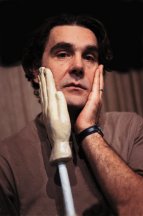
In the eight years since the end of Soviet power—not to mention the end of state subsidies and protectionism—Russia's film industry has struggled in the face of financial shortages, aggressive American competition, and a lack of a definable set of cultural values and metaphors around which a new popular cinema might be cultivated. In these conditions, Russian filmmakers have produced a number of films in which objects of cultural regard acquire new meanings and uses at various moments in the nation's biography, all from a historical perspective that many have characterized as "beyond" or "after" history itself. Such films both depict and participate in Russian society's attempts to define new objects of collective and personal devotion. As represented in recent Russian film, this process resonates with the concept of fetishism, an exaggerated, compensatory performance of desire necessitated by an unacceptable absence, by the painful awareness of lack: material, ideological, moral. The films in the series share an emphasis on desire as a response to lack, through different historical and cinematic filters.
They also have in common the arresting screen presence of Sergei Makovetskii, one of the leading actors in Russia today.
(Russia, 1995) 103 min. Directed by Vadim Abdrashitov. Written by Aleksandr Mindadze. In Russian with English subtitles.

| This contemporary fable involves a passenger on a train who takes an inexplicable interest in the conductor. After he goes so far as to follow the conductor home and move into the man's spare room with his wife, the two men's dark, shared past begins to emerge, as well as an intricate plan to take revenge for something that happened on "the other side" of the Soviet collapse. Winner of the Silver Bear at the Berlin Film Festival. |
(Russia, 1995) 89 min. Directed by Sergei Ursuliak. In Russian with English subtitles.
| Tragicomedy based on Maxim Gorky's play Country House Dwellers. The film examines the lives of the upper-class residents of a summer colony. | 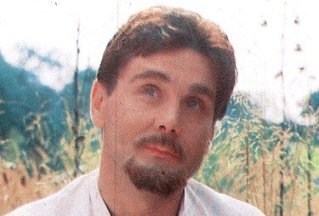
|
(Russia, 1995) 25 min. Directed by Aleksei Balabanov. In Russian with English subtitles.
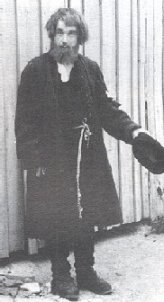
| One of four short films released together as Arrival of the Train to mark cinema's 100th anniversary. This one is constructed around a purported outtake from the Lumieres' famous film of a train arriving at a Russian station. Trofim, a Russian peasant just arrived from the village, continually interrupts the French film maker, who has set up his camera on the platform. Balabanov's narrative also depicts Trofim's story before and after his encounter with the new cinematic technology. |
(Russia, 1993) 99 min. Directed by Vladimir Khotinenko. In Russian with English subtitles.
| Eccentric contemporary drama about a poet, Aleksandr Sergeevich Makarov, whose life changes drastically after he buys a pistol (also a "Makarov"—a well-known type of Russian gun) on a whim from a stranger on the street. | 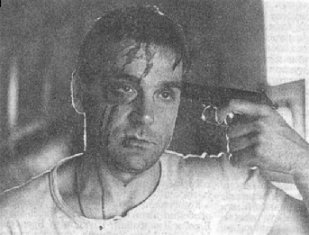
|
(Russia/France, 1992) 108 min. Directed by Ivan Dykhovichnyi. In Russian with English subtitles.
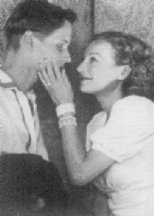
| The wife of a KGB officer in 1939 Moscow tries to escape from the life that has become repulsive to her. The many sub-plots include an ill-fated plan to affix a prosthetic penis to a mare for a military parade and a writer whose artistic integrity leads to a clash with the authorities. Visually, the film recalls the lavish "Grand Style" of High Stalinism, in which Communist slogans and icons combine with the trappings of imperial grandeur, material abundance, and high culture. |
All films in the series will be screened in the movie theater at Carnegie Museum of Art, 4400 Forbes Avenue. Program subject to change.